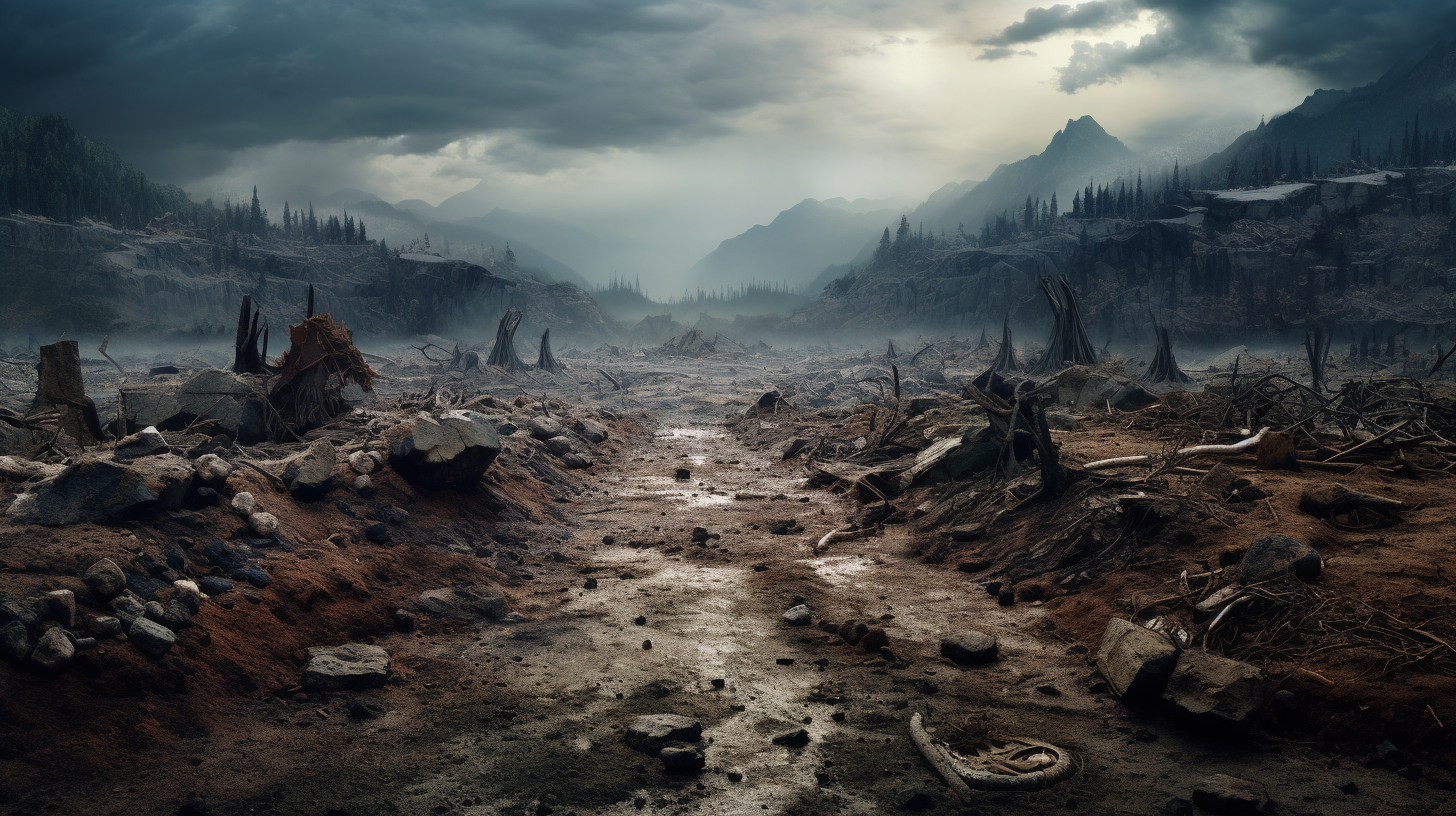A bleak sun rises over a barren landscape, the once bountiful Earth now a canvas of desolation. The buzz of life is replaced by the howling winds that whip across the deserted plains – this is our Teetering Terra. In our latest expose, we cast a dim light on humanity’s desperate attempts at terraformation, a bleak struggle on the precipice of the Anthropocene.
What is Terraformation? Once a term relegated to the lexicon of science fiction aficionados, terraformation refers to the process of transforming an uninhabitable environment into one that can support human life. It is an endeavor initiated out of necessity, in a world where climate change has ravaged ecosystems, and our very survival as a species is questioned.
Our journey into the once-verdant heartlands of the Amazon, now known as the ‘Arid Basin’, reveals a poignant tableau: towering machines dubbed ‘Carbon Scrubbers’ rise like monoliths among the remnants of ancient trees, their roots clutching at the now sterile soil. Here, scientists and ecologists work tirelessly, driven by the desperate hope of resuscitating our dying planet.
Their promise? A rebirth, an Earth re-imagined, through geoengineering feats that seek to sequester carbon, replenish barren soil, and restore the acidity of our oceans to levels hospitable to marine life. Yet, within these grand schemes is an undertone of tragedy. This colossal project is engulfed in whispers of futility, as many believe the ecological tipping point has long passed.
With profound sorrow, we bear witness to the Last Stand – an initiative to reclaim deserts, to breathe life into wastelands using advanced biotechnologies. Pioneering terraformers craft genetic marvels: drought-resistant crops, designer microorganisms set to decompose toxins, and resilient fauna programmed to endure the relentless rise in temperatures. The very essence of evolution is re-architected here, but at what cost?
In the gripping endeavor that is the ‘High Tide Project’, scientists grapple with the swelling seas, tirelessly erecting barriers and repurposing abandoned urban landscapes into fortified havens. The stark image of cities half-submerged, now being retrofitted with flood-resistant biospheres, paints a stark image of human ingenuity pitted against the relentless tide of nature’s ire.
Interspersed within the narrative of transformation are tales of the displaced – millions of climate refugees who traverse the globe in search of sanctuary. Their stories are steeped in loss, their eyes mirroring the guilt of generations past that have led us to this brink of oblivion. They are the reminders of the human cost, as the planet metamorphoses with a heavy heart.
But it’s not just humans who suffer in this forewarning fable; it’s the silent screams of the non-human lives that we mourn. The barely audible buzz of what was once a paradise for pollinators is a ghostly reminder in these genetically managed ecosystems – a testament to the magnitude of the interference necessary for survival in a world we’ve unmade.
Amidst this theatre of the ecological extremes, ethical questions loom large. Is the remaking of Earth a grotesque distortion of the natural order? Are we playing gods in a garden that we have already desecrated? Is this the final outcry of a species facing extinction or the birth pangs of a new world order?
The Verdict of Terraformation – these experiments in planetary revival are the ultimate expression of the paradox that haunts our species: the innate desire to conserve battling the relentless pursuit of advancement. The outcome remains uncertain – the terraformation efforts may be decried as too little, too late, or they could stand as a testament to the indomitable human spirit, eternally striving against the inevitable. The saga of humanity’s final stand on Earth is fraught with poignancy and peril, a compelling narrative of our times.
In this age of distress, the ‘Tales of Terraformation’ unfold as a somber reminder of what could have been and a morose speculation on what might yet be. We, the audience of this unfolding drama, can only wait with bated breath as the act reaches its climax, pondering upon our own roles in this grand, tragic play.
